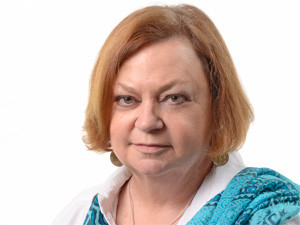
The Democratic Alliance (DA) is looking for an explanation as to why a copy it received of an ICT pact signed between SA and China last June, has the signatories censored.
The DA's shadow minister of telecommunications and postal services, Marian Shinn, says she received the censored document in response to a Public Access to Information Act (PAIA) application she lodged last year.
However, the three signatures ? one for Department of Telecommunications and Postal Services (DTPS) and two for the Chinese Ministry of Industry and Information Technology ? were 'blacked out'. There were also no typed names of the signatories on the document.
The ICT "Plan of Action" document was signed on 8 June 2015. At the time, the DTPS said the areas of cooperation covered by the document included "cyber security, e-government, Internet governance as well as broadband strategies for implementation and rural access".
Other areas of cooperation included SME incubation in ICT, investment in telecommunications services, e-skills professional training, electronics manufacturing and technology transfer, as well as research and development in ICT.
At the time, SA's government released a photograph and media statement about the signing. The government media statement confirms DTPS minister Siyabonga Cwele and the Chinese minister of industry and information technology, Miao Wei, signed the agreement in Cape Town. However, the DA says neither of their signatures nor names appear on the document sent to the opposition party.
"If these two Cabinet ministers were not the signatories of a document binding the countries to co-operate on ICT issues, who did sign them and why are we not allowed to know who they are?" asks Shinn.
She also says the document sent to her by DTPS acting DG, Joe Mjwara, had an accompanying letter saying that for "security reasons" he could not release the identity of the "third party" who signed the document.
At the time of publication, the DTPS had not responded to a number of requests from ITWeb for comment on the matter.
Longstanding concern
Right after the announcement last June, the DA raised concerns over the pact and its impact on SA's attitude towards restrictions on Internet freedom and cyber surveillance of Internet users.
"China has earned a reputation for suppressing freedom of expression of its citizens by clamping down on social media sites, erecting firewalls to restrict citizens' access to news and information from outside sources, and mounting cyber attacks on Western corporations. This is not a regime South Africa needs to align too closely with if we seek to be an active and trusted online trading partner worldwide and champion the freedom of access to information and expression championed in our Constitution," the DA said in a statement on 10 June 2015.
Cwele, at the time, said the agreement would strengthen existing ties between the countries in terms of ICT.
"We need to constantly look for innovative ways to deliver services. Striking long-term strategic partnerships is crucial to addressing these challenges," Cwele said.
Shinn says she has requested clarity on why the signatures were censored in the document she received and was told her request for this information needed to be submitted in a further PAIA application, which she has submitted.
This new PAIA submission is Shinn's fourth on the matter. Her initial request for the document was only answered on 23 December, after she had appealed the lack of response to her second PAIA application, sent on 9 September 2015, and after "two written requests for the document to the minister proved fruitless".
"Such a tortuous process to learn what could probably be communicated in a three-paragraph letter only adds to suspicions as to the reasons for secrecy and the scope of this ICT pact," she concludes.
Share